Vauxhall Corsa vs Hyundai Inster - Differences and prices compared
Compare performance (156 HP vs 115 HP), boot space and price (19600 £ vs 20500 £ ) at a glance. Find out which car is the better choice for you – Vauxhall Corsa or Hyundai Inster?
Costs and Efficiency:
Price and efficiency are key factors when choosing a car – and this is often where the real differences emerge.
Vauxhall Corsa has a minimal advantage in terms of price – it starts at 19600 £ , while the Hyundai Inster costs 20500 £ . That’s a price difference of around 865 £.
In terms of energy consumption, the advantage goes to the Hyundai Inster: with 14.30 kWh per 100 km, it’s barely noticeable more efficient than the Vauxhall Corsa with 14.40 kWh. That’s a difference of about 0.10 kWh.
As for electric range, the Vauxhall Corsa performs slightly better – achieving up to 424 km, about 54 km more than the Hyundai Inster.
Engine and Performance:
Power, torque and acceleration are the classic benchmarks for car enthusiasts – and here, some clear differences start to show.
When it comes to engine power, the Vauxhall Corsa has a distinct edge – offering 156 HP compared to 115 HP. That’s roughly 41 HP more horsepower.
In acceleration from 0 to 100 km/h, the Vauxhall Corsa is distinct quicker – completing the sprint in 7.90 s, while the Hyundai Inster takes 10.60 s. That’s about 2.70 s faster.
There’s also a difference in torque: Vauxhall Corsa pulls significantly stronger with 260 Nm compared to 147 Nm. That’s about 113 Nm difference.
Space and Everyday Use:
Beyond pure performance, interior space and usability matter most in daily life. This is where you see which car is more practical and versatile.
Seats: Vauxhall Corsa offers a bit more seating capacity – 5 vs 4.
In curb weight, Vauxhall Corsa is a bit lighter – 1175 kg compared to 1380 kg. The difference is around 205 kg.
In terms of boot space, the Vauxhall Corsa offers minimal more room – 309 L compared to 280 L. That’s a difference of about 29 L.
When it comes to payload, Vauxhall Corsa a bit takes the win – 445 kg compared to 357 kg. That’s a difference of about 88 kg.
Who wins the race in the data check?
The Vauxhall Corsa sits well ahead of its rival in the objective data comparison.
This result only shows which model scores more points on paper – not which of the two cars feels right for you.
Costs and Consumption
View detailed analysis
Engine and Performance
View detailed analysis
Dimensions and Body
View detailed analysis
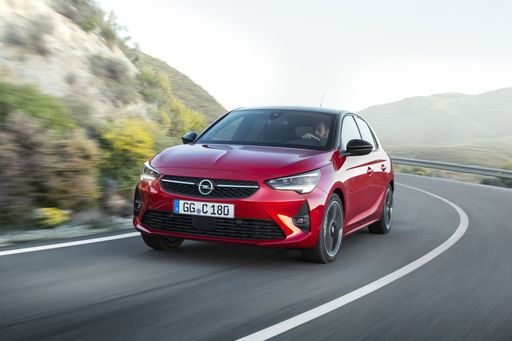
Vauxhall Corsa
Vauxhall Corsa
The Opel Corsa is a tidy little package that blends cheeky styling with sensible practicality, perfect for city streets and weekend escapes alike. It’s easy to live with, economical to run and just lively enough to make daily driving a bit more fun.
details
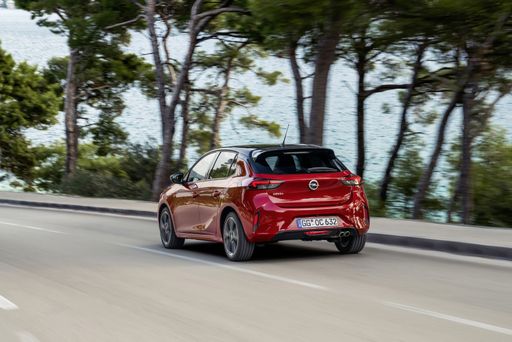
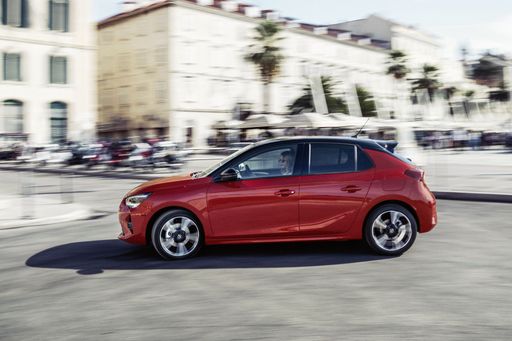
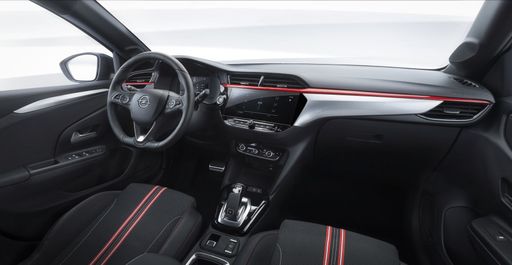
Hyundai Inster
The Inster has quickly captured the attention of automotive enthusiasts with its striking design and dynamic performance. This model seamlessly blends advanced technology with comfort, making it an ideal choice for both daily commutes and adventurous road trips. With its spacious interior and innovative features, the Inster promises an exhilarating driving experience that doesn’t compromise on practicality.
details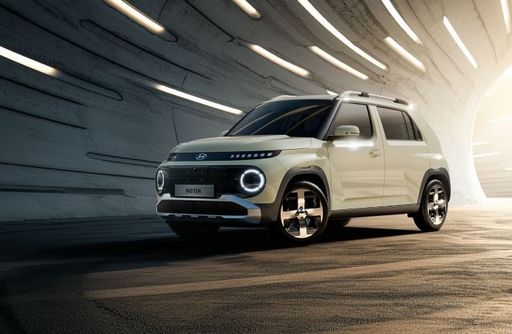
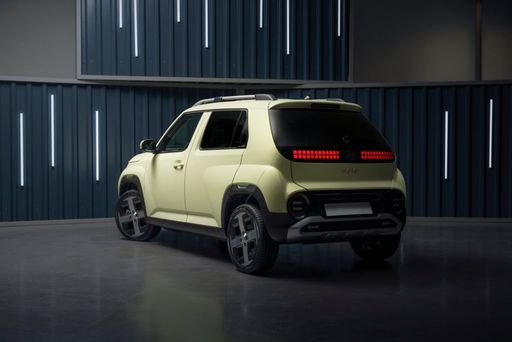
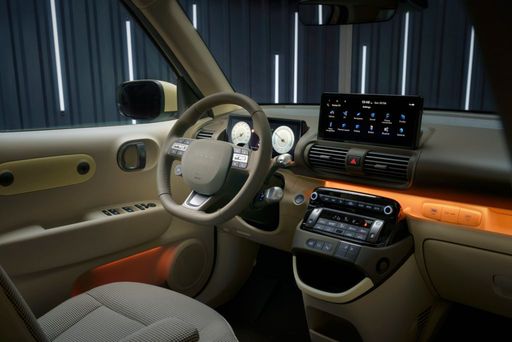
Costs and Consumption |
|
|---|---|
|
Price
19600 - 30600 £
|
Price
20500 - 25800 £
|
|
Consumption L/100km
4.6 - 5.2 L
|
Consumption L/100km
-
|
|
Consumption kWh/100km
14.4 - 16.2 kWh
|
Consumption kWh/100km
14.3 - 15.1 kWh
|
|
Electric Range
347 - 424 km
|
Electric Range
327 - 370 km
|
|
Battery Capacity
46 - 51 kWh
|
Battery Capacity
-
|
|
co2
0 - 116 g/km
|
co2
0 g/km
|
|
Fuel tank capacity
44 L
|
Fuel tank capacity
-
|
Dimensions and Body |
|
|---|---|
|
Body Type
Hatchback
|
Body Type
SUV
|
|
Seats
5
|
Seats
4
|
|
Doors
5
|
Doors
-
|
|
Curb weight
1175 - 1544 kg
|
Curb weight
1380 - 1433 kg
|
|
Trunk capacity
267 - 309 L
|
Trunk capacity
238 - 280 L
|
|
Length
4061 mm
|
Length
-
|
|
Width
1765 mm
|
Width
1610 mm
|
|
Height
1435 mm
|
Height
-
|
|
Max trunk capacity
1004 - 1042 L
|
Max trunk capacity
-
|
|
Payload
376 - 445 kg
|
Payload
317 - 357 kg
|
Engine and Performance |
|
|---|---|
|
Engine Type
Electric, Petrol MHEV, Petrol
|
Engine Type
Electric
|
|
Transmission
Automatic, Manuel
|
Transmission
Automatic
|
|
Transmission Detail
Reduction Gearbox, Dual-Clutch Automatic, Manual Gearbox
|
Transmission Detail
Reduction Gearbox
|
|
Drive Type
Front-Wheel Drive
|
Drive Type
Front-Wheel Drive
|
|
Power HP
100 - 156 HP
|
Power HP
97 - 115 HP
|
|
Acceleration 0-100km/h
7.9 - 9.9 s
|
Acceleration 0-100km/h
10.6 - 11.7 s
|
|
Max Speed
150 - 210 km/h
|
Max Speed
-
|
|
Torque
205 - 260 Nm
|
Torque
147 Nm
|
|
Number of Cylinders
3
|
Number of Cylinders
-
|
|
Power kW
74 - 115 kW
|
Power kW
71 - 85 kW
|
|
Engine capacity
1199 cm3
|
Engine capacity
-
|
General |
|
|---|---|
|
Model Year
2024 - 2025
|
Model Year
2025
|
|
CO2 Efficiency Class
A, C, D
|
CO2 Efficiency Class
A
|
|
Brand
Vauxhall
|
Brand
Hyundai
|
What drive types are available for the Vauxhall Corsa?
The Vauxhall Corsa is offered with Front-Wheel Drive.




